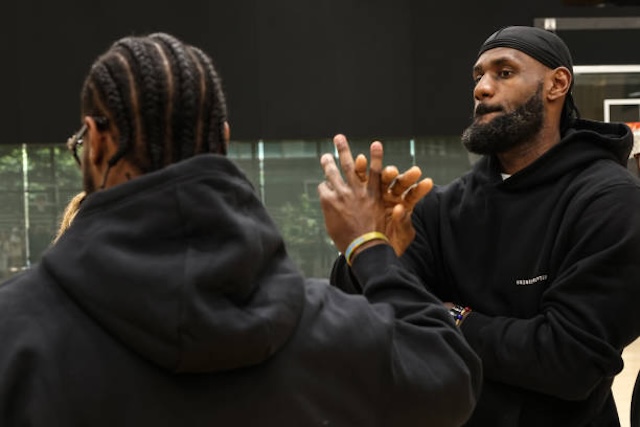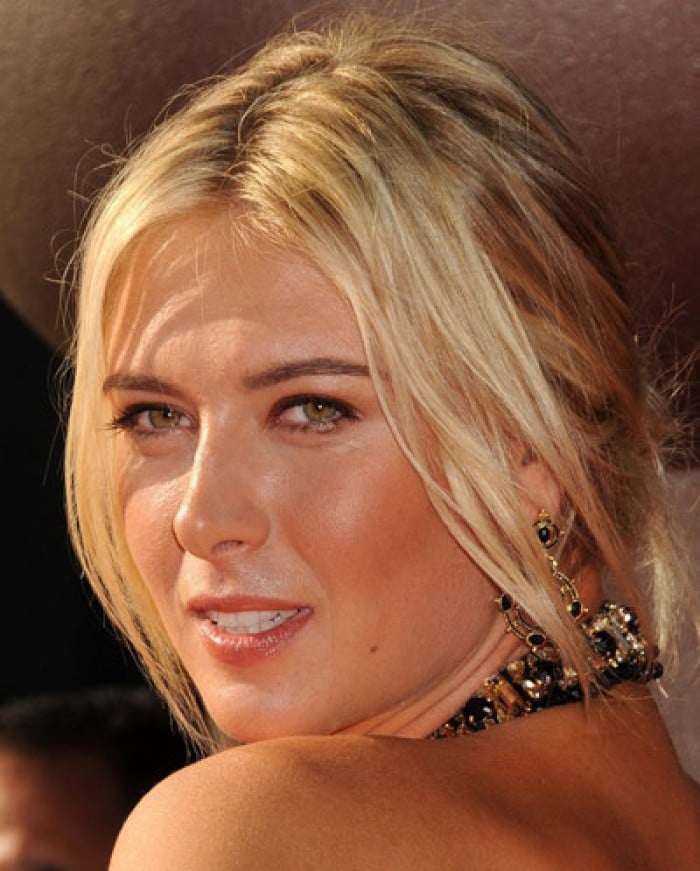Maria Sharapova’s autobiography Unstoppable tells the story of the tennis star’s life and career up to 2017.
The day before the final, I woke up and my throat hurt.
I hate to admit it, but this is just my style. I incubate the disease in my body and then at a critical moment, like the day before a match or a big event, my immune system is disabled. I cough at the worst possible times, like when I bump into a fence or shake someone’s hand.
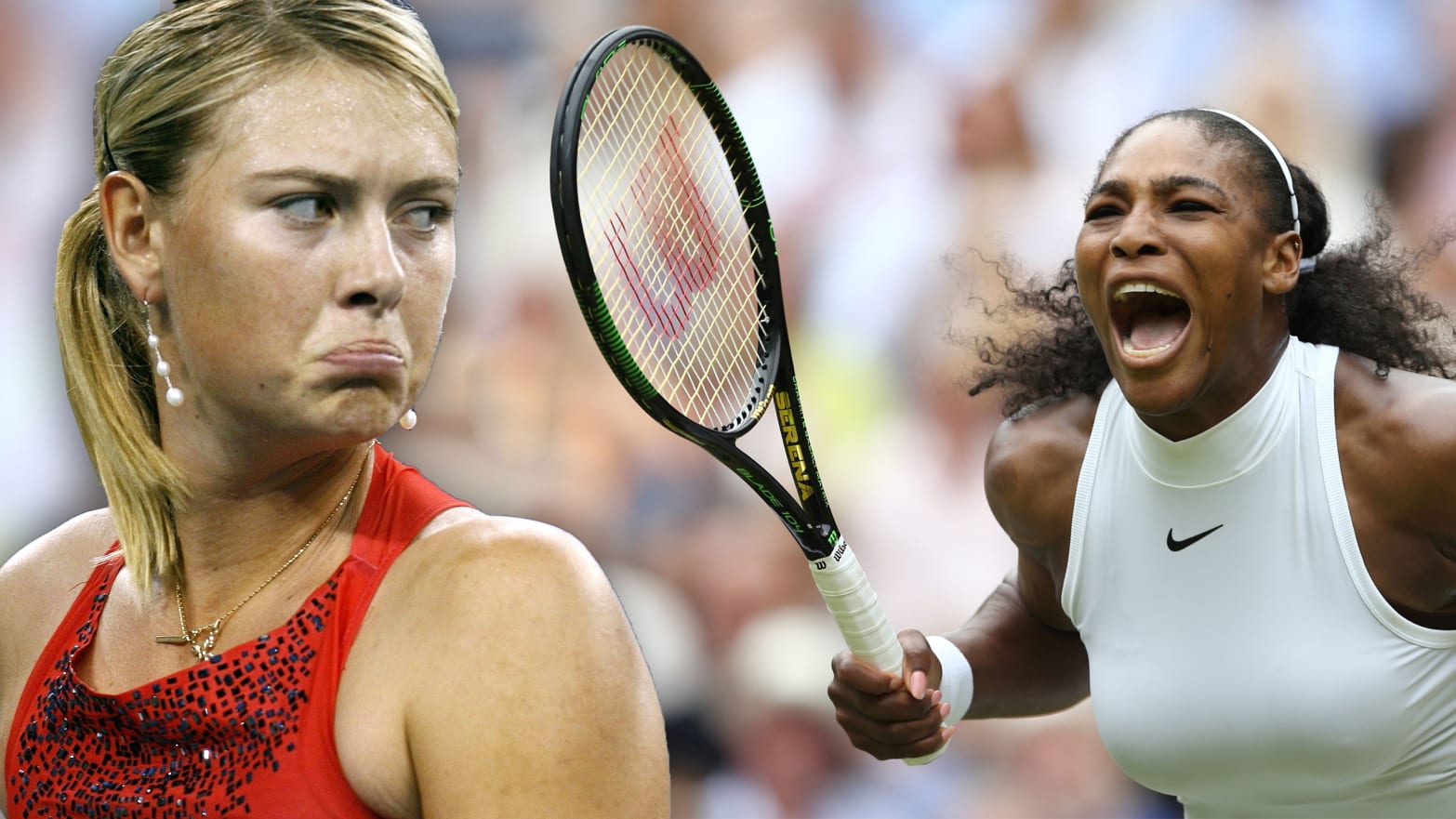
I decided to use my mental strength and willpower to heal my illness and keep my body healthy, just like I trained myself to grow taller by hanging myself from the crossbar of a wardrobe in Florida. “I will play the Wimbledon final tomorrow,” I told myself. “I am not allowed to appear in the Wimbledon final with less than 100% strength. I have to appear in the Wimbledon final with 100% effort.”
I went through my usual morning routine, exercised, then attended the mandatory press conference. When I returned home, my nose was stuffy, my throat was sore, my body ached, and damn it, I had a pretty bad cold.
We called a doctor to come to our house and he followed me with all kinds of tools in a black briefcase. After the examination, he shrugged. “What can I say, Maria? She is sick. The good news is that she doesn’t have a fever, doesn’t have a virus, and doesn’t have the flu. She just has a common cold.”
“What can I do to get better?”, I asked.
“Drink plenty of fluids, get plenty of sleep and don’t push yourself too hard,” he said. “Normally, after a week you will feel better.”
I thanked the doctor, then went back to my room, lay down on the bed and screamed. Then I called my mother. That’s also my habit. I act unforgiving and cold towards the world, because the world can hurt me, then I call my mother and burst into tears.
“What’s wrong, Maria?”, she was confused and comforted me, then she advised me not to torment myself. “Tomorrow, you will play the biggest match of your life,” she said. “Today, rest and think positively. If you do that, everything will be fine.”
So I spent the rest of the day lying in bed, reading tabloid magazines and drinking honey tea.
I tried a kind of autosuggestion right before going to bed that night. Lying there, under a large cotton blanket, on a high English bed, the room as dark as any room in the world, I talked to myself the way Yuri had talked to me all those years ago. postponed due to rain during the match against Davenport.
I told myself, “Listen, body, in the morning, the cold will be gone and you will be fine again. That’s not a request. It was an order. Now, let’s do it.”
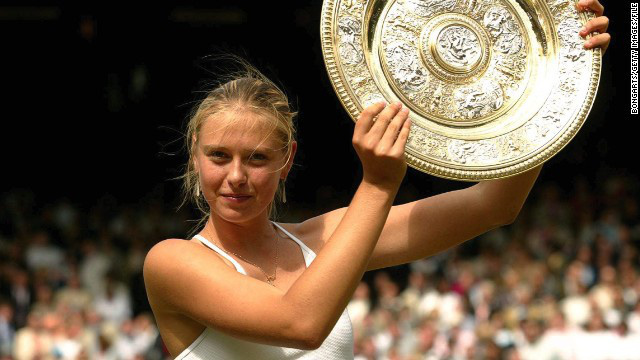
Then I turned over, closed my eyes and tried to sleep, but couldn’t. First, I think about tomorrow, the television and the crowd, the biggest match of my life. Then I thought about my opponent, the person who has given me more trouble throughout my career than anyone, Serena Williams.
She won Wimbledon last year and the year before that, and is now trying to become the first woman to win three years in a row since Steffi Graf. From the outside, she seems unbeatable, big, fast and strong, a player who can finish any ball from anywhere on the court! Perhaps she is the best tennis player. She is older than me, and has participated in this tournament before so she knows everything related to the tournament.
And as I thought about all of this, as all of this went through my mind, I suddenly became acutely aware of my sore throat and stuffy nose that was making it hard to breathe. Oh my god, if I can’t even breathe, why fight anymore? As I pondered that over and over again, my heart began to pound. After that, I realized that I had slept too little because I was thinking so hard all the time.
Of course I needed to sleep, but when I thought about that, the period of insomnia continued, and after a while, it was almost dawn. […] Yuri made me oatmeal, just like every other morning. I had breakfast, drank honey tea and then went out to the yard.
In the middle of the storm
I told the coach about the cold the way you might tell someone a terrible secret. He must have thought I was trying to justify my inevitable failure. I basically said: “Teacher, I have a bad cold. And last night I hardly slept. So what else do you expect?”
He looked at me and laughed.
“Is there something funny, teacher?”
“It’s you,” he replied. “I’m sitting here, just hours before the Wimbledon final, and worried about catching a cold. What, have a cold? As soon as the first ball is hit, the damn thing is gone, okay? Disappeared as if it had never appeared. What’s wrong, insomnia? As soon as I step onto the field, I will be more alert than ever, the most alert in my entire life! Well, Maria is worried because she has a cold!”
In fact, I don’t have to wait for the first ball to get better. As soon as those words were spoken, my cold was cured!
I do the pre-match sequences. Go out on the field, play warm-up balls for 40 minutes, then go back to the locker room and relax, think and try… without thinking! I was placed in the dressing room reserved for members, a very luxurious place.
A few days ago, there were still many other players in this room, but today it’s just Serena and me. This was my first Grand Slam final, so it was also the first time I truly experienced the “cold emptiness” of the final round. There were a lot of people outside, both fans and reporters. It was a large and noisy crowd. And in the middle of that crowd, you sit alone, in a deserted locker room.
Was it then that I sat and reminisced about the long journey I had overcome to be in the final? No, not at all. I only think about the present and the next five minutes! That’s how you get through days like this. You simply need to focus on doing one task after another…
I went to the gym to warm up. The weather has become very beautiful, the temperature is about 20-210C, there is a light wind, and it is clear like after a storm. The seats in the stands began to be filled by spectators. It was early afternoon, but that was the golden moment when everything became noisy. I’m back, excited and ready to fight. An old feeling seemed to stir within me, the desire to defeat all opponents.
I went back to the dressing room and waited. Serena was there. Without looking, I can still hear her! Like me, she had finished preparing for the match, and was sitting alone at that time. It was like we were the only two people on a deserted planet, sitting just a few meters apart but each acting like… we were the only ones there!
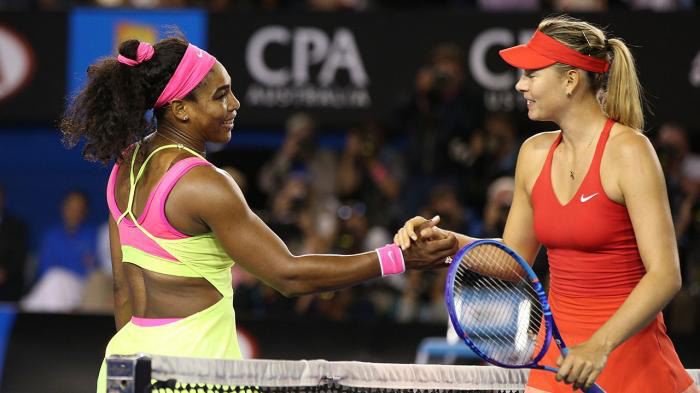
Serena and I should have been friends: we loved the same things, we had the same passion. Very, very few people in this world know what we know: what it feels like to be in the eye of a storm, the fear and anger that motivate you, the feeling of winning or losing, etc.
But we’re not friends at all. I think, to some extent, we motivate each other. Which might be better than being friends, right? Maybe that is what is needed to stir up in us an “appropriate” level of anger. Only with anger and a strong sense of resistance will you have the strength to defeat her. But who knows? One day, when all this is in the past, maybe we will become friends. Or not. […]
On the tennis court, Serena Williams seems almost arrogant, with an indifferent look in her eyes, as if she were standing somewhere above and looking down at you below! I realized that because I also had a similar look in my eyes. It’s a skill that distracts her opponents – her look seems to say to her opponents: “Hey, you don’t stand a chance!”. Normally, it would work, and it was true that her opponent had no chance of winning. But it doesn’t always work, especially if the opponent has the same attitude and behavior. [..]
Serena’s return shot did not go over the net. The match ended, I knelt down, covered my face with my hands and felt extremely joyful. Each athlete has their own way of celebrating victory: some clench their fists and raise their fists, others point to the sky, etc. Personally, even when I do that, I am aware that this gesture is not mine. […]
I ran to the net. I thought Serena would shake my hand at the net. That’s what you usually do, after the match the two sides shake hands and exchange stupid polite comments. But instead, she came and hugged me. That surprised me greatly.
I thought: “Is this a ritual? Is this what you’re supposed to do when you lose a Grand Slam final?” Then I thought, “OK, if she wants to hug me, I’ll hug her back.” Serena hugged me tightly and I hugged back, even though I was actually looking past her and into the stands, trying to locate my father and make eye contact with him for the first time as champion. Wimbledon.
Serena said something like “Good job”, and smiled. But in her heart, she probably couldn’t laugh…
In February 2020, Maria Sharapova announced her retirement after suffering shoulder injuries and not being able to regain peak form. The beautiful Russian tennis player has won the Gland Slam 5 times after 15 years of professional competition. In addition, thanks to her glorious tennis career, she has also accumulated assets of up to 325 million USD.
